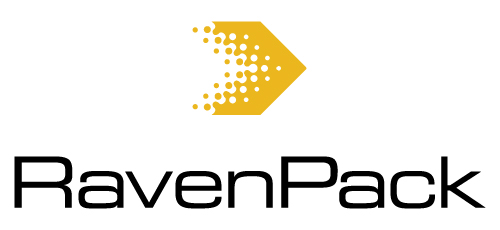Invited Speakers
- Nada Amin (Harvard SEAS), Staged Relational Interpreters: Running Backwards, Faster
- Andrew Sorensen (Australian National University), Symbolic Expressions for Cyber-Physical Programming
- Inna Grinis and Andrew Lawson(RavenPack), Producing News Analytics and Turning them into Actionable Insights
Highlights
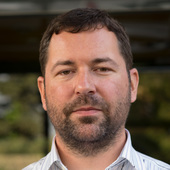
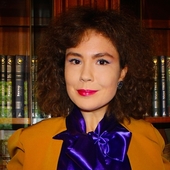
Keynote: Producing News Analytics and Turning them into Actionable Insights
-
 Andrew Lawson Andrew Lawson RavenPack (SPEAKER) Spain
Andrew Lawson Andrew Lawson RavenPack (SPEAKER) Spain -
 Inna Grinis Inna Grinis RavenPack (SPEAKER) Spain
Inna Grinis Inna Grinis RavenPack (SPEAKER) Spain
We will first look at the basics of RavenPack’s news analytics system, from incoming stories to outgoing analytics and the technology involved. We will then look at several examples of how RavenPack’s news volume, sentiment scores, events taxonomy, and connections functionality can be leveraged to create data insights that can be used to make more informed decisions in the finance industry and the corporate world.
-
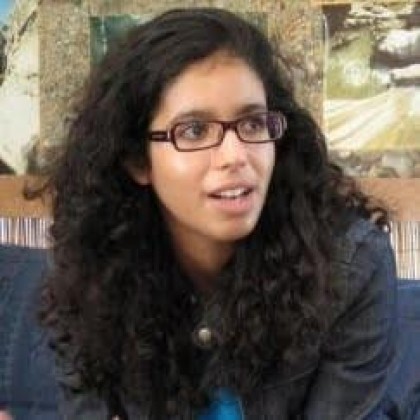
Keynote: Staged Relational Interpreters: Running Backwards, Faster
-
 Nada Amin Nada Amin Harvard SEAS (SPEAKER) USA
Nada Amin Nada Amin Harvard SEAS (SPEAKER) USA
Relational programming, as exemplified in miniKanren, strives to be a pure form of logic programming. Relational interpreters enable turning functions into relations, as well as synthesizing functions from partial specifications. However, however successful, the approach incurs an interpretation overhead. We turn functions into relations, while removing all interpretation overhead thanks to a novel multi-stage programming mechanism. While partial evaluation has a rich history in both functional and logic programming, multi-stage programming has so far only been explored in a functional/imperative setting, with many success stories in high-performance computing. Bringing multi-stage programming to relational programming, we derive a relational compiler from the relational interpreter. Via this compiler, we generate relations from functions with no interpretation overhead. In addition to useful first-order applications, we explore running staged relational programs backwards. In this talk, I will introduce multi-stage programming in its traditional functional setting and in the new relational setting. I will explain how to derive a compiler from an interpreter using generative programming. I will showcase the resulting staged-miniKanren system with a theorem checker turned prover and various towers of interpreters for generating quines.
-
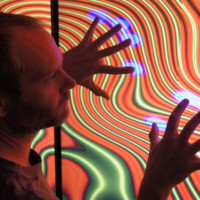
Keynote: Symbolic expressions for cyber-physical programming
-
 Andrew Sorensen Andrew Sorensen Australian National University (SPEAKER) Australia
Andrew Sorensen Andrew Sorensen Australian National University (SPEAKER) Australia
Cyber-physical programming gives programmers the ability to engage actively and proactively in an experimental and experiential relationship with complex virtual, physical and cultural systems. Cyber-physical programming offers programmers the opportunity to actively shape and control these complex systems of events - to be engaged with them. Studying these natural events is often only possible in situ, in-the-world, within their own temporal and spatial frames of reference. Cyber-physical programming posits that a causal connection to the world is valuable and that it can be useful to privilege the present. To quote Rodney Brooks “It turns out to be better to use the world as its own model”. One of cyber-physical programming's tenets is that a program's state is not only an internal property of the machine, but is also an external property-of-the-world. This external, physical state, can be sensed and acted upon by both the machine and the programmer. The programmer is actively engaged in both perceiving and acting upon the world, directly, but also mediated through the machine. For the cyber-physical programmer, the physical environment constitutes a meaningful component of a program's state.
-
Location
 Online https://els2021.common-lisp.net/everywhere/ (CONFERENCE) Everywhere (CEST)
Online https://els2021.common-lisp.net/everywhere/ (CONFERENCE) Everywhere (CEST) Organization
Programme Chair
-
 Marco Heisig Marco Heisig FAU Erlangen-Nürnberg (PROGRAMME-CHAIR) Germany
Marco Heisig Marco Heisig FAU Erlangen-Nürnberg (PROGRAMME-CHAIR) Germany
Organizing Chair
-
 Didier Verna Didier Verna https://www.didierverna.info EPITA / LRE (ORGANIZING-CHAIR SPEAKER) France
Didier Verna Didier Verna https://www.didierverna.info EPITA / LRE (ORGANIZING-CHAIR SPEAKER) France
Local Chair
-
 Mark Evenson Mark Evenson RavenPack (LOCAL-CHAIR SPEAKER) Austria
Mark Evenson Mark Evenson RavenPack (LOCAL-CHAIR SPEAKER) Austria
Committee
-
 Breanndán Ó Nualláin Breanndán Ó Nualláin Machine Learning Programs (COMMITTEE) Netherlands
Breanndán Ó Nualláin Breanndán Ó Nualláin Machine Learning Programs (COMMITTEE) Netherlands -
 Christophe Rhodes Christophe Rhodes Google (COMMITTEE SPEAKER) UK
Christophe Rhodes Christophe Rhodes Google (COMMITTEE SPEAKER) UK -
 David McClain David McClain SpectroDynamics LLC (COMMITTEE) USA
David McClain David McClain SpectroDynamics LLC (COMMITTEE) USA -
 Evrim Ulu Evrim Ulu Istinye University (COMMITTEE) Turkey
Evrim Ulu Evrim Ulu Istinye University (COMMITTEE) Turkey -
 Ioanna Dimitriou Ioanna Dimitriou Igalia (COMMITTEE) Germany
Ioanna Dimitriou Ioanna Dimitriou Igalia (COMMITTEE) Germany -
 Irène Durand Irène Durand LaBRI University of Bordeaux (COMMITTEE) France
Irène Durand Irène Durand LaBRI University of Bordeaux (COMMITTEE) France -
 Jim Newton Jim Newton EPITA Research Lab (COMMITTEE SPEAKER) France
Jim Newton Jim Newton EPITA Research Lab (COMMITTEE SPEAKER) France -
 Jonathan Godbout Jonathan Godbout Google (COMMITTEE) USA
Jonathan Godbout Jonathan Godbout Google (COMMITTEE) USA -
 Kai Selgrad Kai Selgrad OTH Regensburg (COMMITTEE) Germany
Kai Selgrad Kai Selgrad OTH Regensburg (COMMITTEE) Germany -
 Kent Pitman Kent Pitman Harvard Medical School (COMMITTEE) USA
Kent Pitman Kent Pitman Harvard Medical School (COMMITTEE) USA -
 Matthew Flatt Matthew Flatt University of Utah (COMMITTEE) USA
Matthew Flatt Matthew Flatt University of Utah (COMMITTEE) USA -
 Michael Sperber Michael Sperber DeinProgramm (COMMITTEE) Germany
Michael Sperber Michael Sperber DeinProgramm (COMMITTEE) Germany -
 Olin Shivers Olin Shivers Northeastern University (COMMITTEE) USA
Olin Shivers Olin Shivers Northeastern University (COMMITTEE) USA -
 Paulo Matos Paulo Matos Igalia (COMMITTEE) Germany
Paulo Matos Paulo Matos Igalia (COMMITTEE) Germany -
 R. Matthew Emerson R. Matthew Emerson toughtstuff LLC (COMMITTEE) USA
R. Matthew Emerson R. Matthew Emerson toughtstuff LLC (COMMITTEE) USA -
 Robert Smith Robert Smith HRL Laboratories (COMMITTEE) USA
Robert Smith Robert Smith HRL Laboratories (COMMITTEE) USA -
 Stefan Monnier Stefan Monnier University of Montreal (COMMITTEE) Canada
Stefan Monnier Stefan Monnier University of Montreal (COMMITTEE) Canada
Virtualization Team
-
 Georgiy Tugai Georgiy Tugai Configura (VIRTUALIZATION) Sweden
Georgiy Tugai Georgiy Tugai Configura (VIRTUALIZATION) Sweden -
 Michał Herda Michał Herda (VIRTUALIZATION) Poland
Michał Herda Michał Herda (VIRTUALIZATION) Poland
Programme
Times are local to the conference. You can download the programme in iCalendar format here.May 3rd
Broadcast start
Welcome Message
Auction Start
Keynote: Symbolic expressions for cyber-physical programming
- Andrew Sorensen
Coffee Break
A Tangram Puzzle Solver in Common Lisp
- Michael Wessel
A Portable, Simple, Embeddable Type System
- Jim Newton
- Adrien Pommellet
Lunch
Common Lisp Project Manager
- Eric Timmons
A Corpus Processing and Analysis Pipeline for Quickref
- Antoine Hacquard
- Didier Verna
Coffee Break
Lisp in the middle: using Lisp to manage a Linux system
- Mikhail Raskin
Panel Discussion: Implementations of ANSI Common Lisp
- Mark Evenson
- Daniel Kochmański
- Christophe Rhodes
- Kevin Layer
- Christian Schafmeister
Lightning Talks
Get-together
May 4th
Broadcast start
Keynote: Producing News Analytics and Turning them into Actionable Insights
- Andrew Lawson
- Inna Grinis
Coffee Break
A replicated object system
- Hayley Patton
aether: Distributed system emulation in Common Lisp
- Eric Peterson
- Peter Karalekas
Lunch
A Scheme Foreign Function Interface to JavaScript Based on an Infix Extension
- Marc-André Bélanger
- Marc Feeley
Call-site optimization for Common Lisp
- Robert Strandh
Coffee Break
Keynote: Staged Relational Interpreters: Running Backwards, Faster
- Nada Amin
Lightning Talks
Auction Stop
Closing Ceremony

